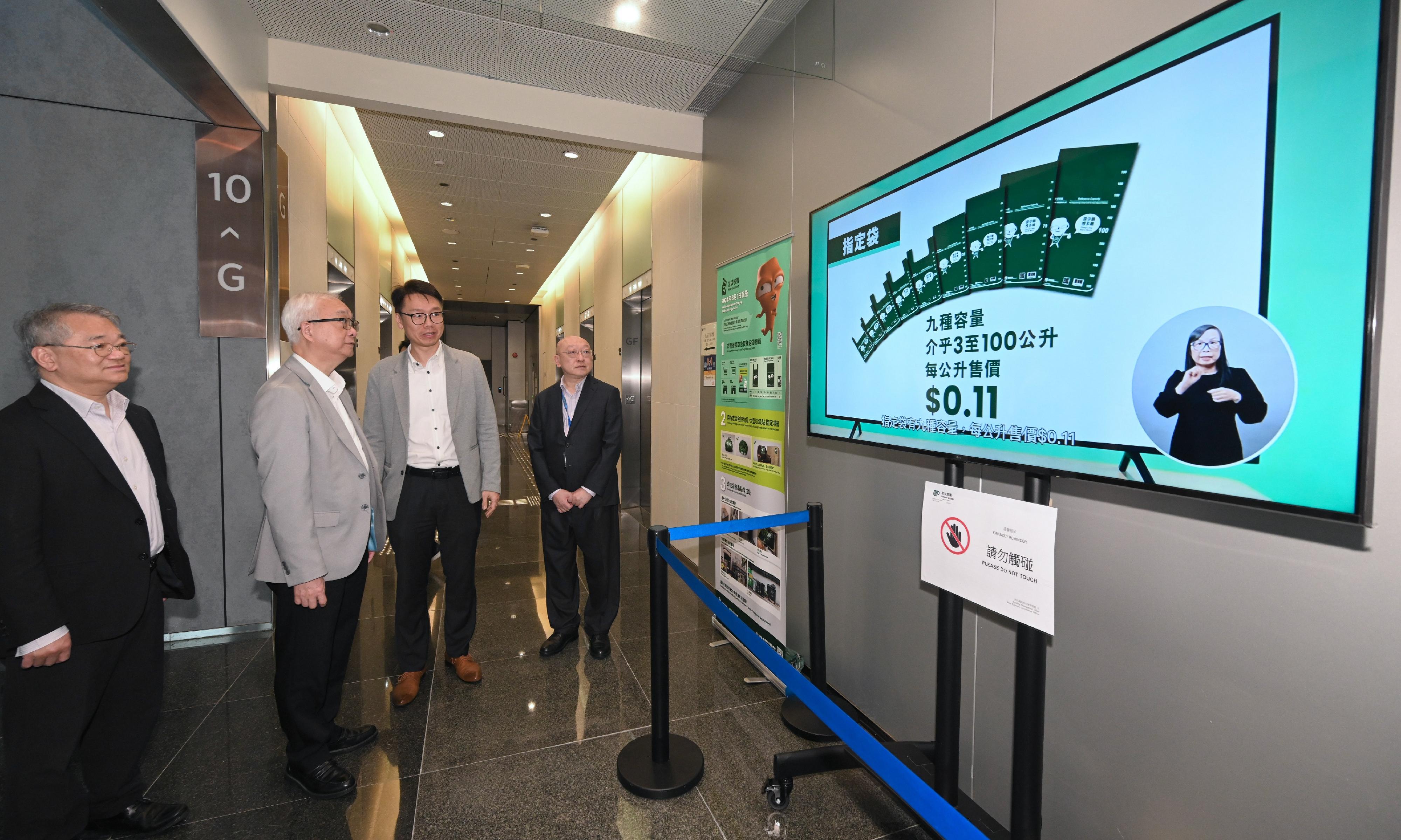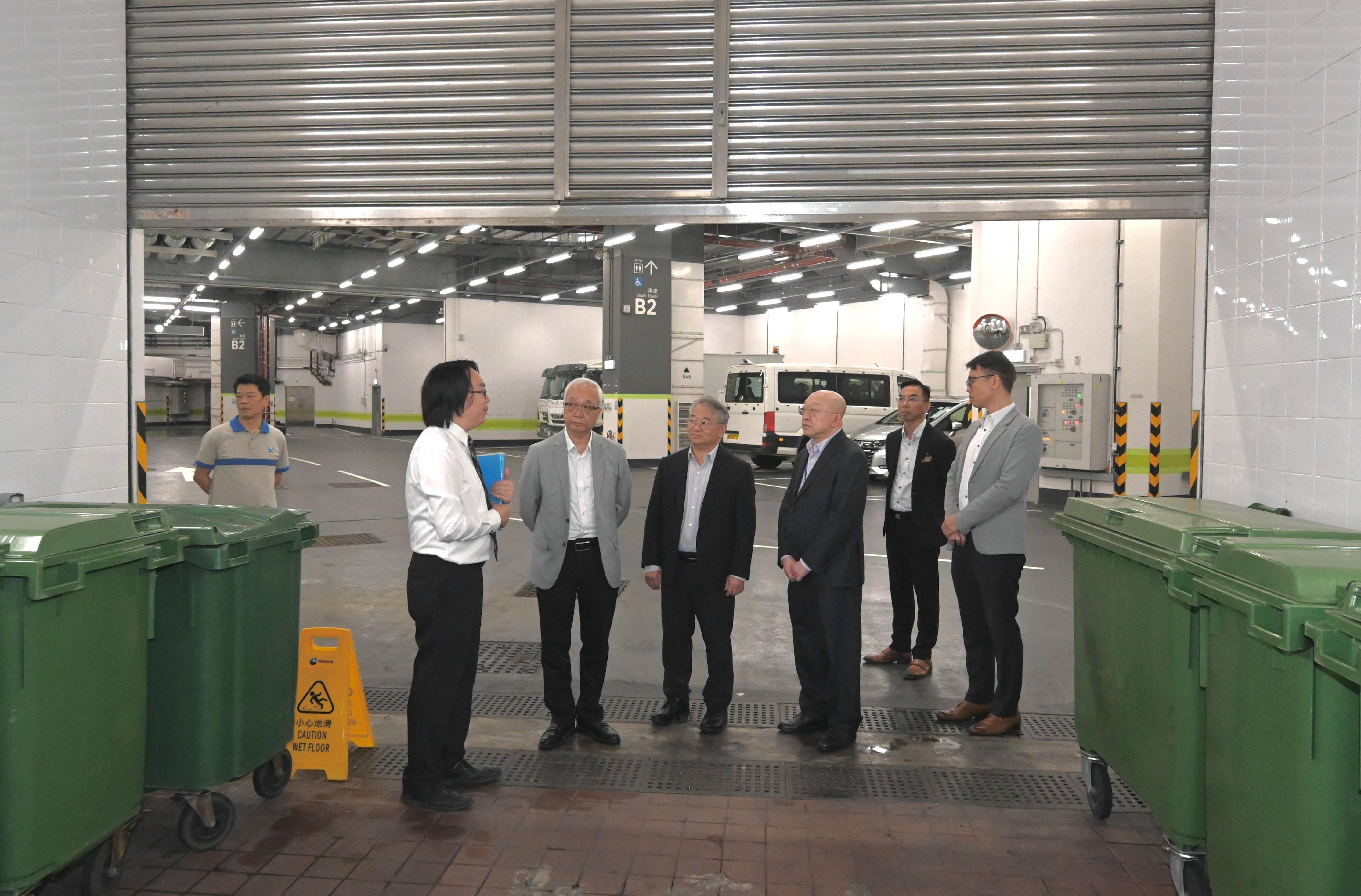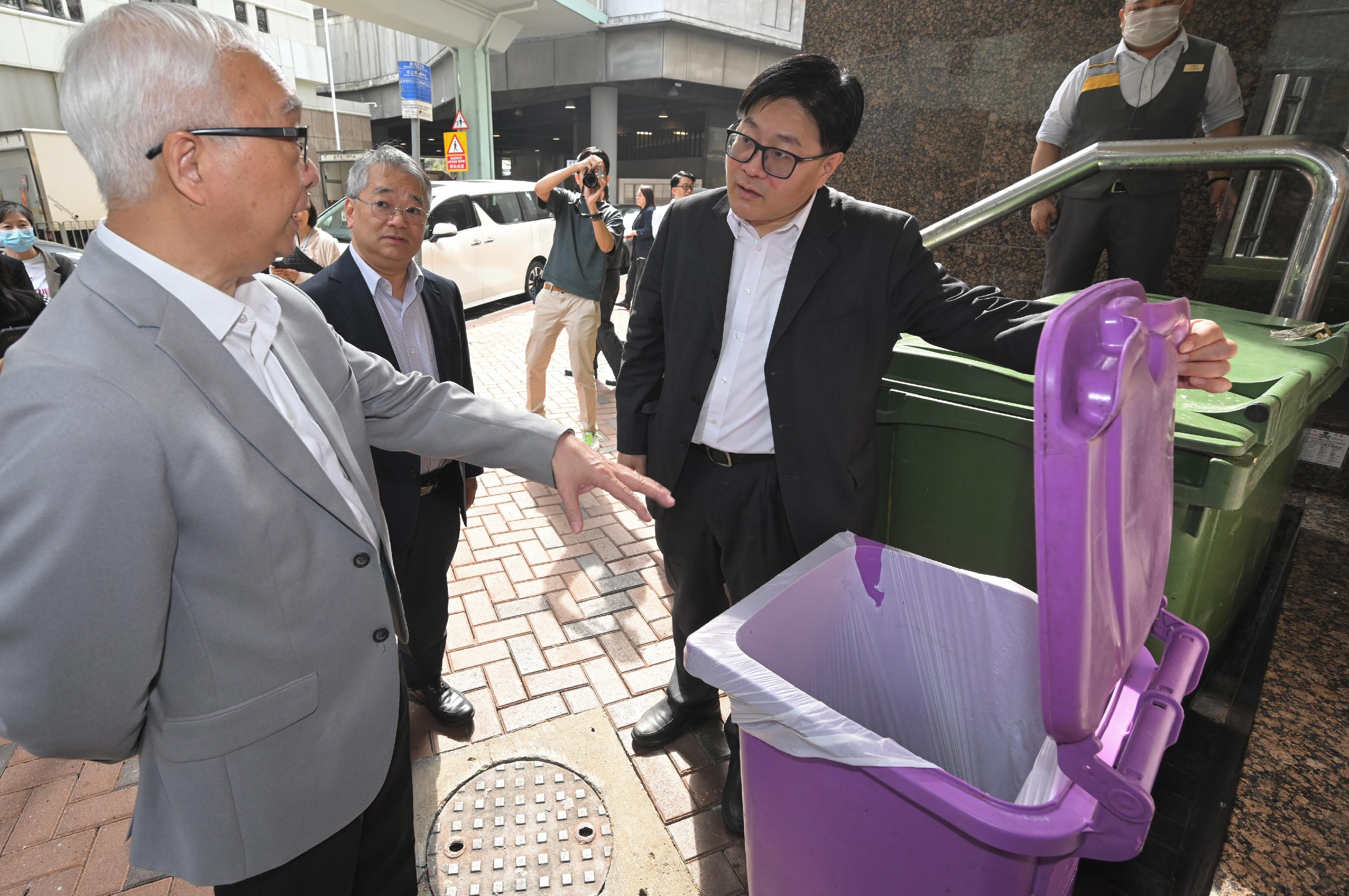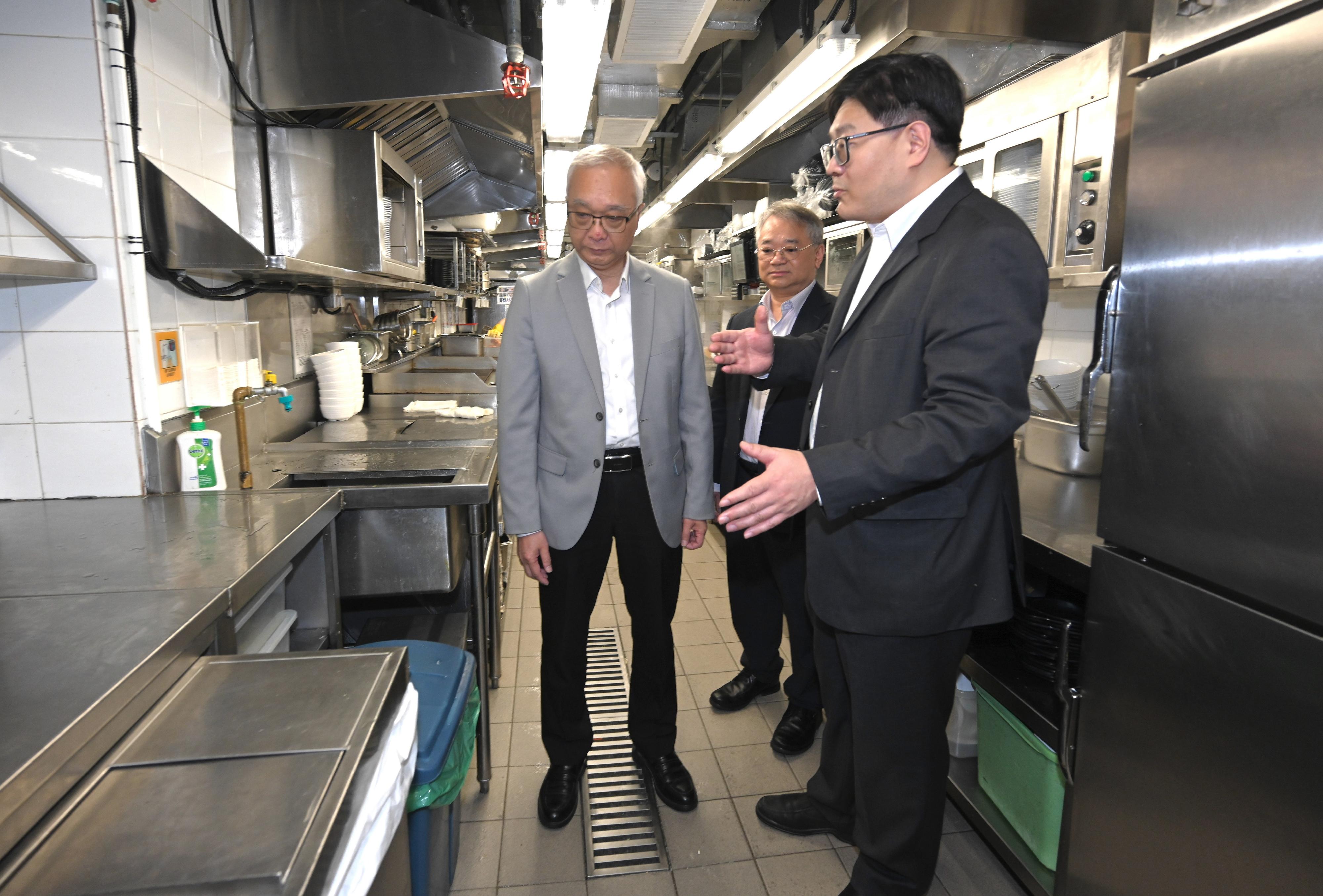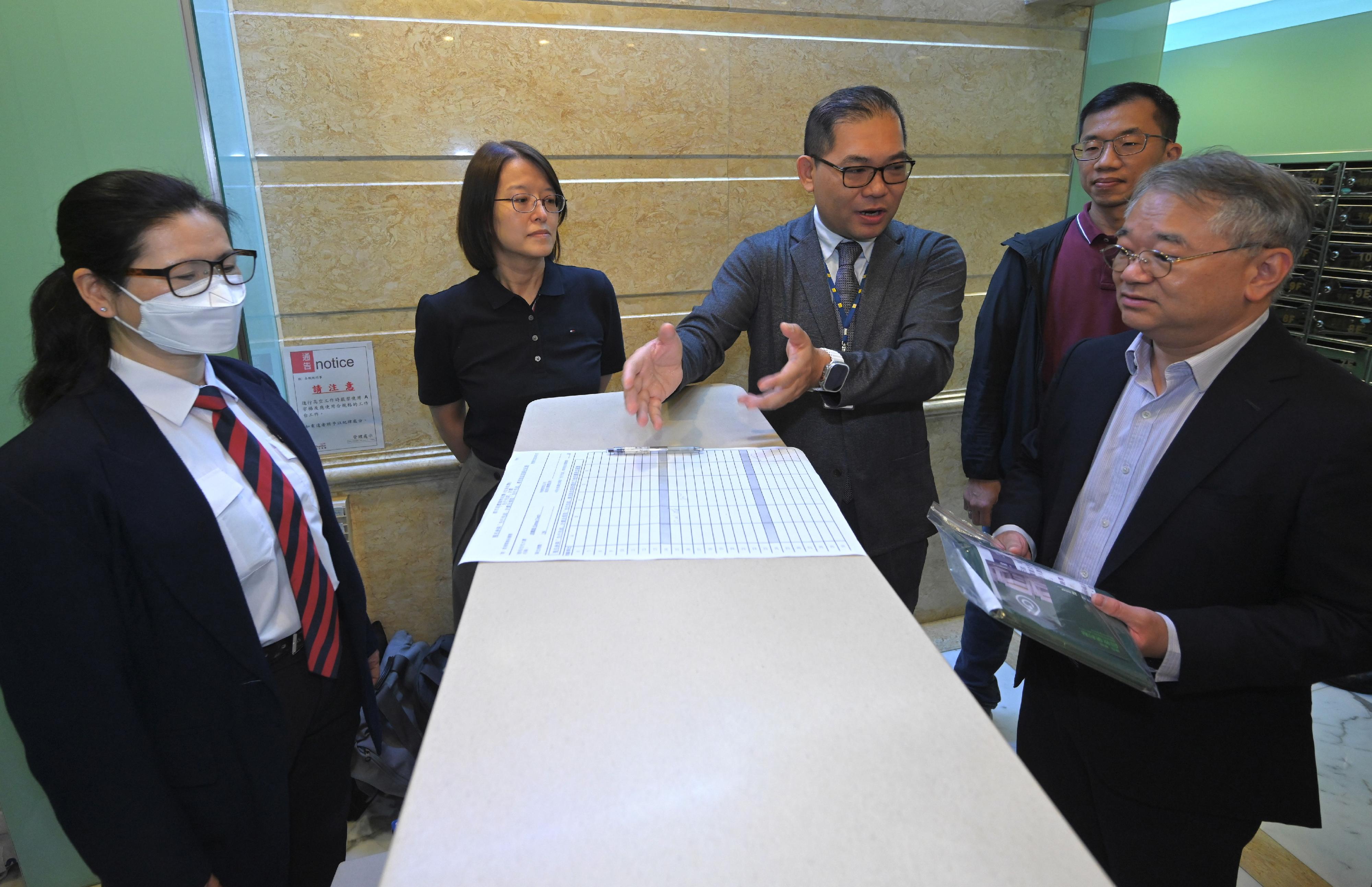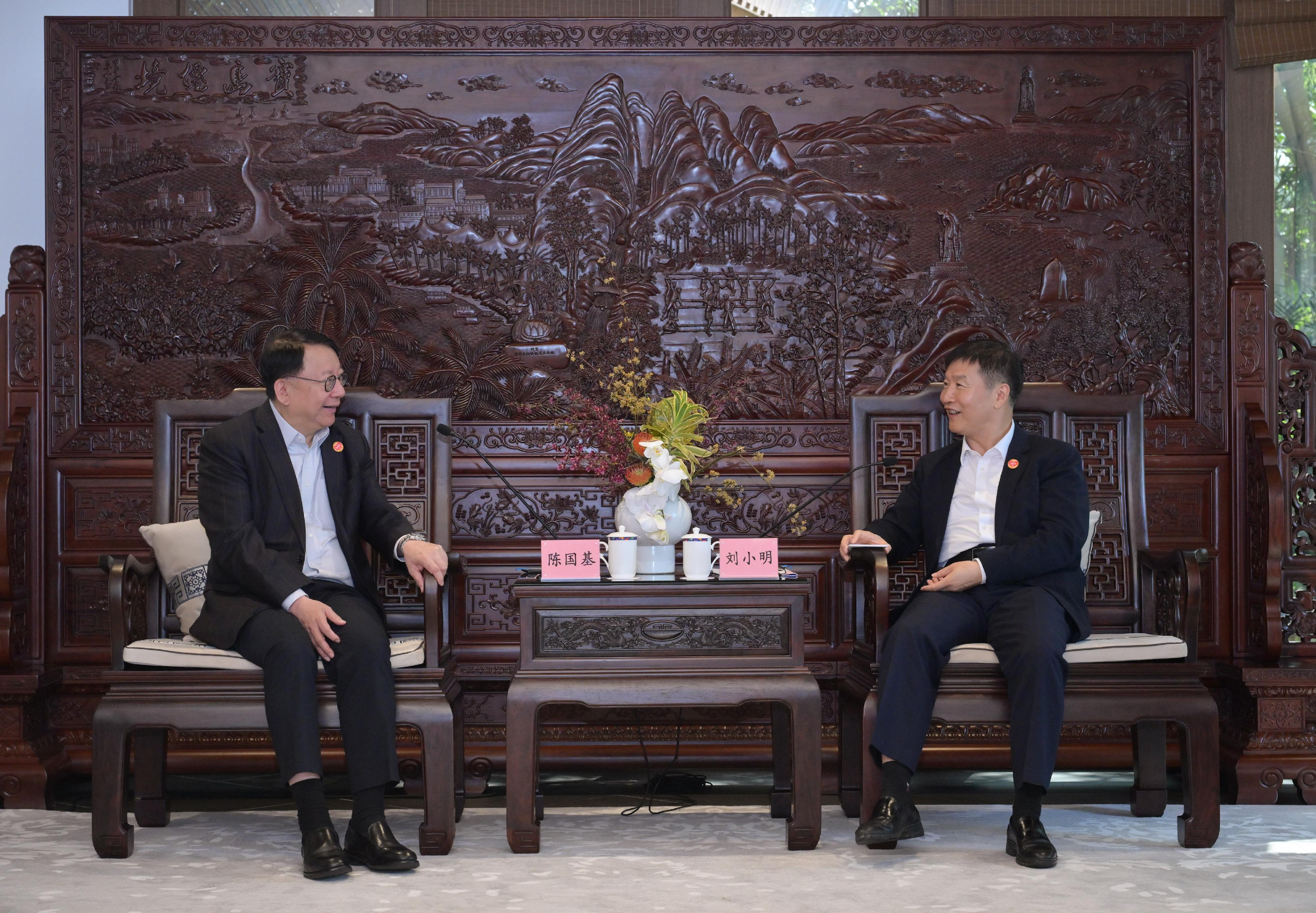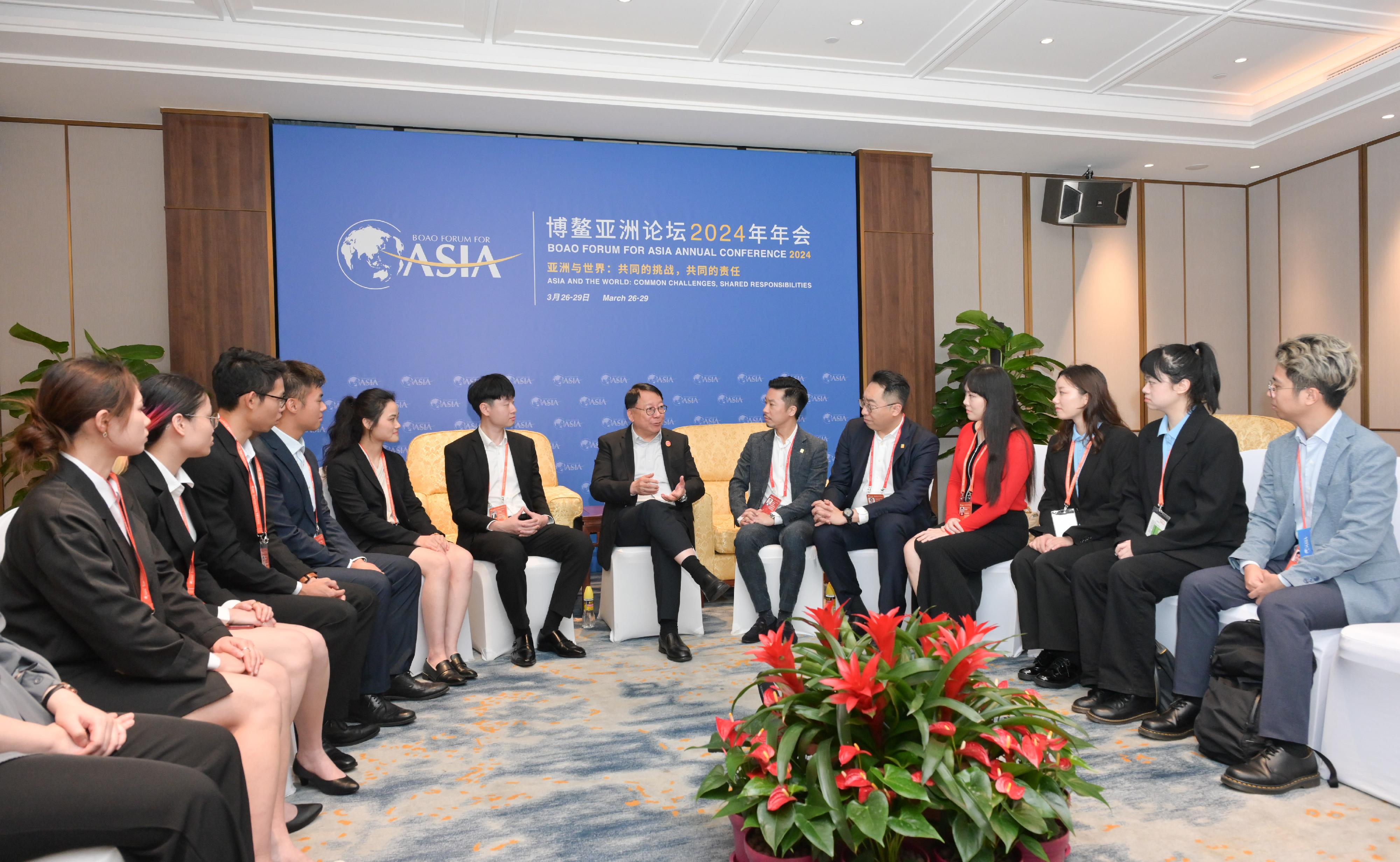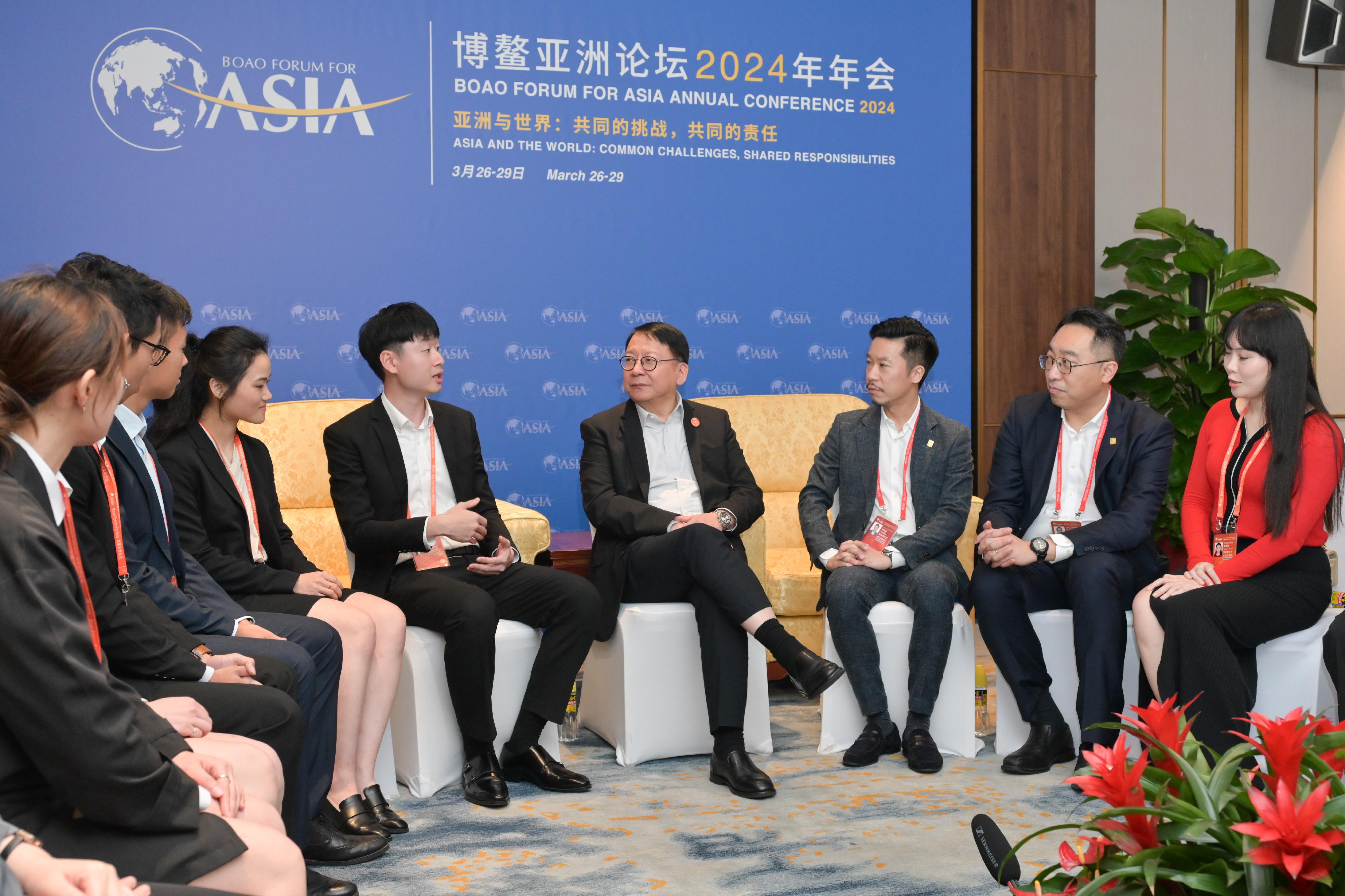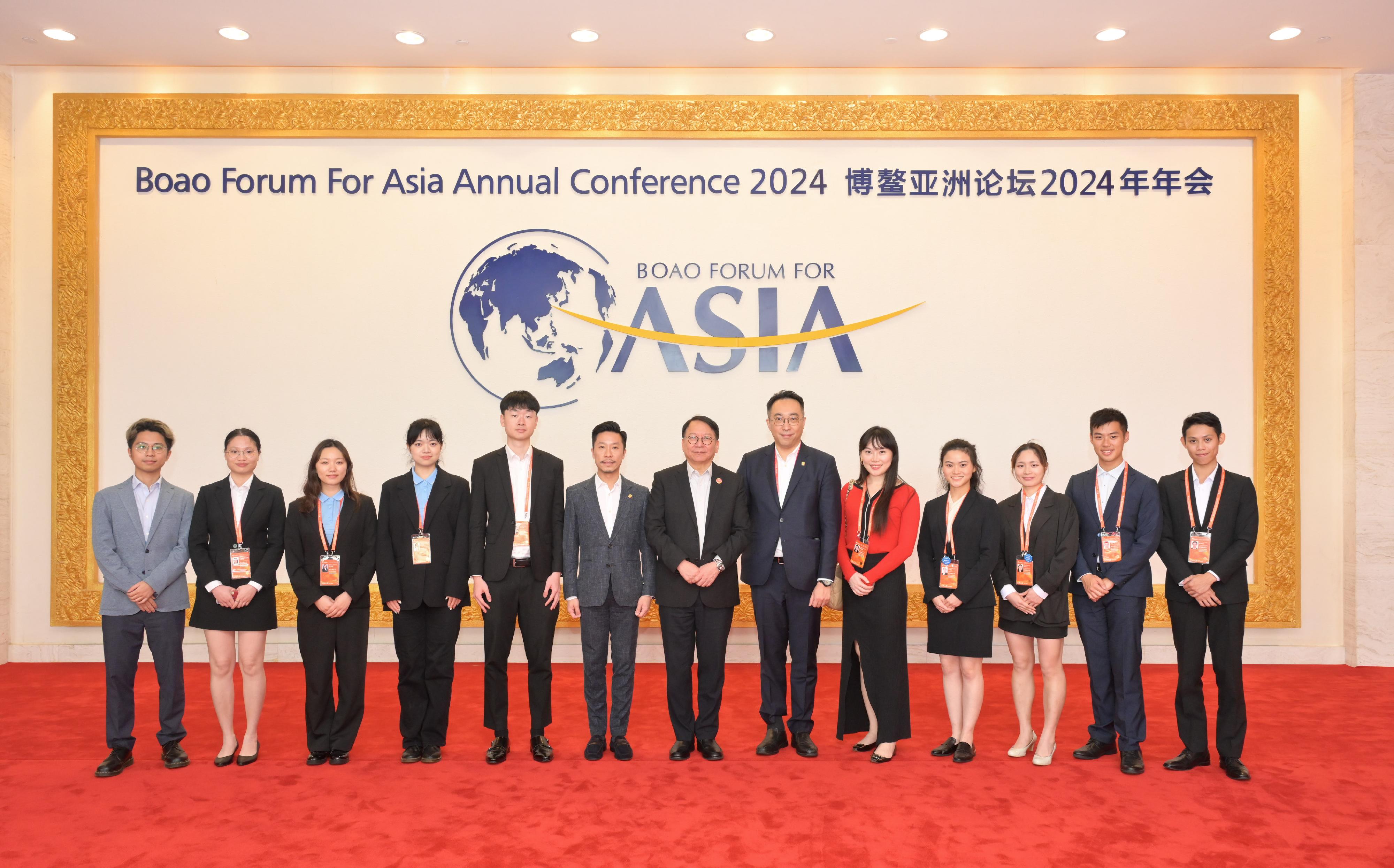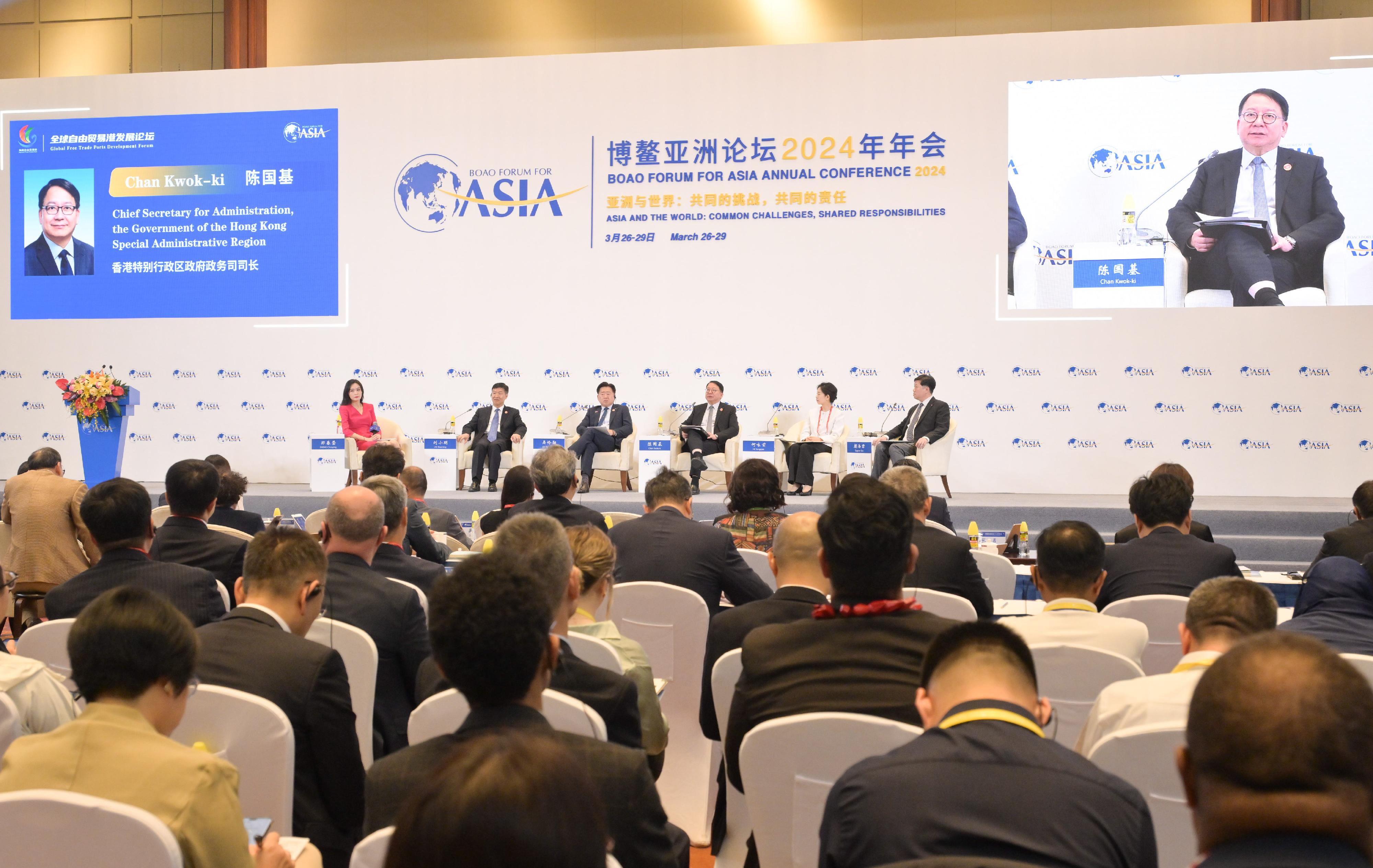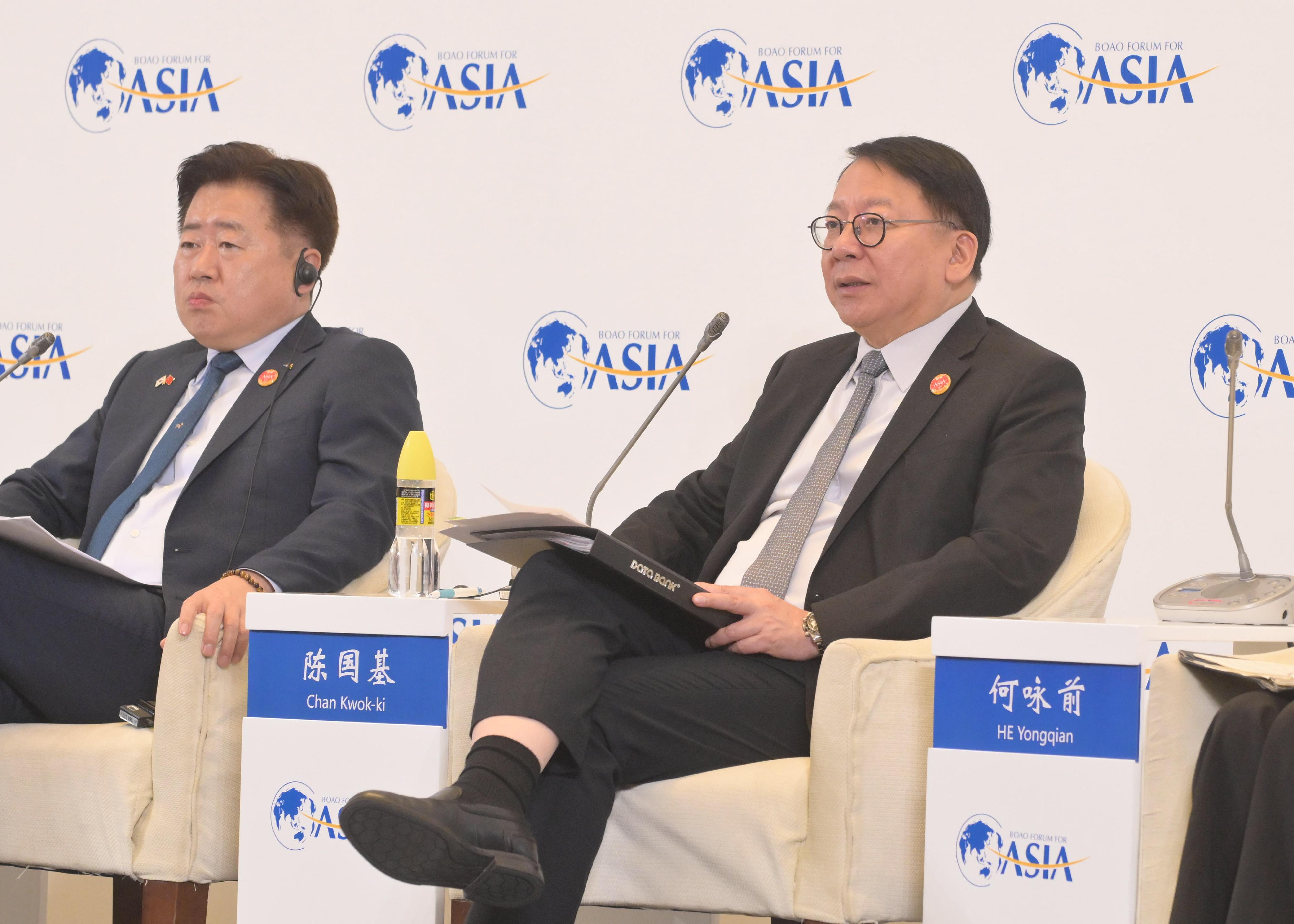Following is a question by the Hon Chan Pui-leung and a written reply by the Secretary for Health, Professor Lo Chung-mau, in the Legislative Council today (March 27):
Question:
Regarding District Health Centres (DHCs) and interim "District Health Centre Expresses" (DHCEs), will the Government inform this Council:
(1) of (i) the values of the operation service contracts for various DHCs and DHCEs, and (ii) the respective information on the primary and secondary disease prevention service outputs of such DHCs and DHCEs in the past year (set out in Table 1);
Table 1
| DHC/DHCE |
(i) |
(ii) |
Primary prevention service
output target |
Actual primary prevention
service output |
Secondary prevention service
output target |
Actual secondary prevention
service output |
| |
|
|
|
|
|
(2) of the respective manpower of various DHCs and DHCEs in each of the past three financial years (set out in tables of the same format as Table 2);
Table 2
Name of DHC/DHCE :
| |
2020-2021 |
2021-2022 |
2022-2023 |
| DHC/DHCE |
| Contractual manpower requirement |
|
|
|
| Strength |
|
|
|
| Target attainment percentage |
|
|
|
| Care and Service Department (if applicable) |
| Contractual manpower requirement |
|
|
|
| Strength |
|
|
|
| Target attainment percentage |
|
|
|
| Administration and Finance Department (if applicable) |
| Contractual manpower requirement |
|
|
|
| Strength |
|
|
|
| Target attainment percentage |
|
|
|
(3) how the authorities deal with situations of failure of the operators concerned to meet service contract requirements (including failure to meet the relevant service output and manpower requirements); whether the authorities will step up efforts in monitoring the enforcement situation of the relevant contractual terms; if not, of the reasons for that; and
(4) as some members of the public have relayed that they do not quite understand the services provided by DHCs, and they consider that the relevant publicity channels are homogeneous and tend to focus on people in the age group of 45 or above, whether the authorities will step up publicity and education targeting people in the younger age group (i.e. people aged 44 or below); if so, of the details; if not, the reasons for that?
Reply:
President:
The reply to the respective parts of the question raised by the Hon Chan Pui-leung is as follows:
In face of the pressure brought about by an ageing population and the increasing prevalence of chronic diseases, the Government released the Primary Healthcare Blueprint (Blueprint) in December 2022, setting out a series of reform initiatives to strengthen primary healthcare services in Hong Kong. Strategies are prevention-oriented, community-based, family-centric and focus on early detection and intervention, with the vision of improving the overall health status of the population, providing coherent and comprehensive healthcare services, and establishing a sustainable healthcare system. Among the recommendations in the Blueprint, we propose to further develop a district-based family-centric community health system based on the District Health Centre (DHC) model.
The Government has set up DHCs and interim DHC Expresses of a smaller scale in all districts across the city by the end of 2022, thereby attaining the interim goal of covering all 18 districts to establish personalised health plans for the public according to their age, gender and lifestyle, etc.
With the gradual service commencement of the DHCs and the DHC Expresses in various districts, the Government will continue to promote primary healthcare and the DHCs on multiple fronts:
(1) Organise with the operators of the DHCs and the DHC Expresses city-wide promotional activities such as roving exhibitions, promotional booths and outreach services;
(2) Launch promotional campaigns on multi-media channels, including Announcements in the Public Interest on television and radio, television and radio programmes, advertisements and feature articles in newspapers, promotion on online and cross-social media platforms and mass transportation system advertisements (including Mass Transit Railway lightbox advertisements, advertisements on bus bodies and minibus bodies); and
(3) Promote primary healthcare and the DHCs directly to community members, stakeholders and service partners, as well as post posters and distribute leaflets in public places including schools, libraries, public and private housing estates, government clinics and community pharmacies and the DHCs.
As the healthcare service and resource hub in the community, the DHCs are crucial in strengthening the concept of "Family Doctor for All" and cultivating a long-term doctor-patient relationship between the patient and his/her family doctor (especially in the management of chronic diseases). The Government has implemented the Chronic Disease Co-Care Pilot Scheme (CDCC Pilot Scheme) since November last year, further strengthening the role of the DHCs/DHC Expresses with a view to supporting participants to better control hypertension and diabetes mellitus and prevent complications, as well as co-ordinating and arranging participants to receive screening and appropriate multidisciplinary treatment (including physiotherapy, dietetic consultation, optometry assessment and podiatry services) in private sectors at a subsidised rate.
The three years of COVID-19 epidemic inevitably affected the preparatory work and commencement of the DHCs, as well as their progress in recruitment of members and service provision after commencement. At the initial stage, the DHCs also needed to operate for a reasonable period before they could increase their number of members and service capacity. With the resumption of normalcy and the lifting of social distancing measures after the COVID-19 epidemic, coupled with establishment of the DHCs in all 18 districts, the number of new DHC members has continued to increase each year, from about 2 900 in 2019/20, gradually to about 11 500 in 2020/21, about 23 000 in 2021/22, about 89 000 in 2022/23, and around 79 200 (provisional figures) from April 1 to December 31, 2023. As at December 31, 2023, the accumulated number of members was around 205 600 (provisional figure). This reflects that the DHCs have been gradually building a primary healthcare service network which begins to take shape in the community. This is attributable to the increased public awareness of disease prevention and self-health management, as well as the expansion and promotion work of the DHCs.
The contract sum of operation service contracts and actual service attendances of each DHC and DHC Express are set out in Annex 1. The staff establishment of each DHC and DHC Express are set out in Annex 2. As the major expenditure of the DHCs is composed of fixed expenses including rental and staff costs, the average service costs would be higher at the initial stage. It is anticipated that the average service costs will gradually decrease along with the increase in members and service volume of the DHCs and DHC Expresses.
The Government will continue to review the services of the DHCs with a view to strengthening their roles as the co-ordinator of community primary healthcare services and case manager, so as to provide comprehensive primary healthcare services to the public in the community. The Government also commissioned the Chinese University of Hong Kong to conduct a monitoring and evaluation study on the DHCs to evaluate their degree of achievement on different targets and overall performance, including quality and effectiveness of different DHC services, influences of DHC services towards individuals and the community as well as the cost-effectiveness of the DHCs. The report of the evaluation study will be submitted to the Steering Committee on Primary Healthcare Development for deliberation. The Government shall consider the report and views of the Steering Committee when reviewing the service of the DHCs.
The Government will also enhance the terms of the DHC operation service contracts. Currently, the DHC operation service contracts have provided specific descriptions of various facilities and service requirements, including recruitment and qualifications of the network service providers, required numbers of various professionals, the areas and numbers of satellite centres to be established as well as staffing establishment of the centres. The tender documents have also stated that the Government shall have the right to terminate the contract upon an operator's non-compliance of the contract requirements. Starting from this year, the Primary Healthcare Office (PHO) will adjust the terms of operation service contracts for the DHCs and DHC Expresses progressively, including adjustment on the categories of service targets to complement the enhancement of DHC services, such as pairing of family doctors for citizens and nurse clinic service provision, etc. With the implementation of the CDCC Pilot Scheme, the PHO will also review the performance assessment indicators of the DHCs to include new members' participation in the CDCC Pilot Scheme as one of the indicators.
